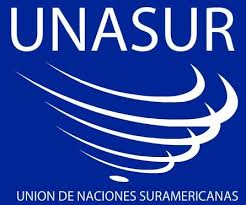Quito (Prensa Latina).- With the inauguration of the new headquarters of the Union of South American Nations (UNASUR) a few steps from the equinoctial line that divides the world in two halves, Ecuador became the core of the integration process that began in 2008.
The leaders of the bloc, who met in Guayaquil and Quito on December 4 and 5, respectively, noted the need to build South America’s unity gradually.
The presidents of Argentina, Bolivia, Brazil, Colombia, Chile, Ecuador, Guyana, Paraguay, Peru, Surinam, Uruguay and Venezuela, or their representatives, also reaffirmed that peace, democracy and the promotion of human rights are still the guiding principles of that integration.
Among the concrete results from the two-day extraordinary summit was the approval of a regional mobility plan.
According to UNASUR’s secretary general, former Colombian President Ernesto Samper, a South American passport will be adopted for nearly 500 million people in the region.
There were strong calls at the summit to fight poverty and inequality, as the eradication of both scourges poses the major challenge for the region at present.
In that regard, Ecuadorian President Rafael Correa, as the summit’s host, called the shots and gave speeches in Guayaquil and Quito, where he highlighted the need to prioritize humans over capital as a sine qua non condition to achieve fair and equal development.
Correa told his South American peers that UNASUR might become the world’s fourth largest economy because, as a bloc, it accounts for 6 percent of the global Gross Domestic Product (GDP).
In addition, we have one third of the planet’s drinking water, the first place in food production and hydrocarbon reserves for the next 100 years, he recalled.
According to the Ecuadorian president, those privileged conditions can only be preserved with the true and effective unity of the bloc, which he urged to build a financial architecture as soon as possible, including its own bank and funds.
Correa, an economist by profession, noted that it is paradoxical that the UNASUR countries have deposited more than 760 billion dollars in the so-called First World, but the region still depends on foreign loans and investments.
He said that UNASUR needs to have its own mechanisms of compensation, a regional currency and an arbitrage center on investments.
In the first segment of the summit in Guayaquil, Surinam handed over the pro tempore presidency of UNASUR to Uruguay, an occasion to bid farewell to Jose Mujica, who will leave the presidency in March.
Famous for his sincerity and confidence, the former Uruguayan guerrilla fighter captivated his South American colleagues and the audience packed at the Eloy Alfaro Civic Center with a speech full of truths.
Integration is only possible if there is a political will, assured Mujica, adding that he did not have the vocation of a hero, but he had a sort of fire inside against social injustice and class differences.
Mujica also noted the need for that commitment, because “obstacles in the world are huge, because the past continues putting pressure on us, due to an economic situation marked by transnational companies of a colossal nature, and because inequality bites the entrails of our continent.”
A NEW HEADQUARTERS IN THE MIDDLE OF THE WORLD
The corollary of the two-day summit was the inauguration of the UNASUR headquarters, a futuristic building in the Middle of the World City, near the imaginary Equatorial line that divides the planet in the north and south hemispheres.
According to its designer, architect Diego Guayasamin, rather than a building, he tried to build a sculpture that somehow “reflects a metaphor of freedom”, so he resorted to large open spaces, water mirrors and three projecting parts that protrude from the nucleus of the five-story building.
Keeping the protection of the environment in mind, the UNASUR headquarters was built using environmentally-friendly materials and its external metallic elements were covered with a chemical compound that repels dust and absorbs particles of carbon dioxide.
The new building was named after late Argentine President Nestor Kirchner, to whom the UNASUR leaders paid tribute. They also honored late Venezuelan President Hugo Chavez, who was described as the renovator of the unity proclaimed by Liberator Simon Bolivar, and as the architect and promoter of Latin American integration.
* Prensa Latina Correspondent in Ecuador.










